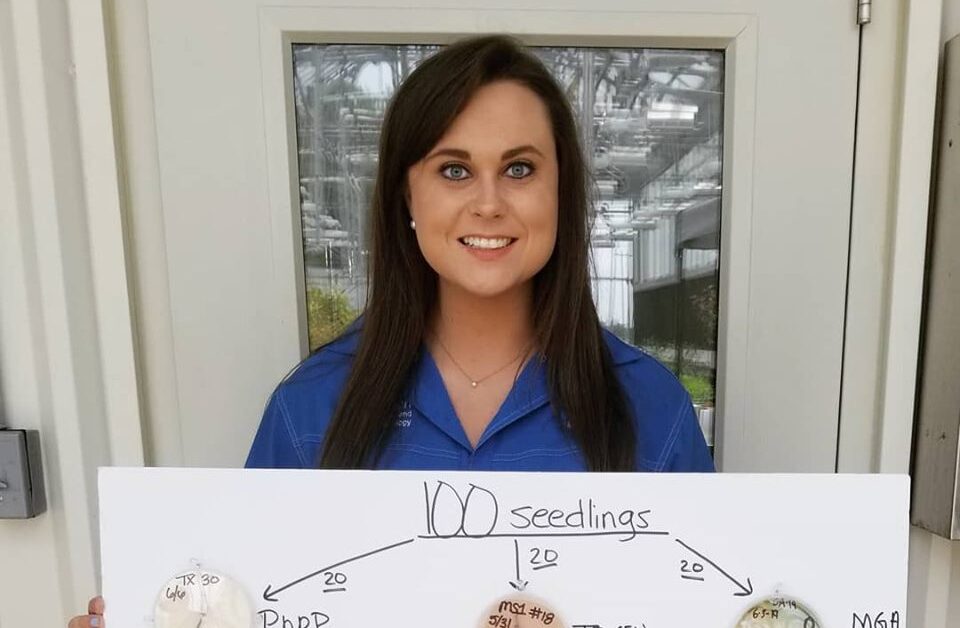
The Department of Entomology and Plant Pathology proudly highlights the invaluable contributions of first-generation students, staff, and faculty. To offer a glimpse into the unique perspectives and experiences within our community, we are honored to feature Shelly Pate, a graduate student research assistant studying plant pathology at the West Tennessee AgResearch and Education Center.
In her own words, Pate shares her experiences on being a first-generation college student:
“As an only child, I have always received an abundant amount of love, support, and guidance. However, when the time came to start applying to colleges as an undergraduate, I realized something was starting to become a little different. Although I was still receiving the same amount of love and support, my family did not know how to guide me in my application process. This was the first time I realized that being a first-generation college student would be a more complicated transition than I had anticipated.
I soared through undergraduate and began having thoughts of pursuing a graduate degree. I did not realize how different the application process would be. There were so many components, and quite honestly, a lot of things I did not understand. None the less, I persevered, and I was accepted into the Entomology and Plant Pathology program at the University of Tennessee within Dr. Heather Kelly’s lab.
At first, I was completely intimidated. I had never been exposed to research at this level, and in addition to this, I had never lived more than 40 minutes away from home. I only knew two other people in Knoxville at the time, and neither one of them was in graduate school. Although I could express my fears and worries to my family, they could never truly understand what I was struggling with because they had never experienced it. Eventually, the other new graduate students in my department assured me that they were just as lost as I was, and I began to feel more confident in my abilities.
Time carried on, and I am now in my second to last semester of graduate school at UT. I am more confident in my research, professional, and academic abilities than I have ever been. I have learned that even at this point: I will sometimes still feel like I don’t know what’s going on and that I will occasionally doubt myself. However, I have also realized that is perfectly normal for all graduate students. Along the way, I have learned that it is not healthy to carry all of your questions, fears, anxieties, and worries on your own. I would have never made it this far in my professional/academic journey without the guidance of some very important people.
My undergraduate advisor, Dr. Barbara Darroch, guided me through my time as an undergraduate at UT Martin. She also helped me believe in myself when applying to graduate school. The entire UT Martin College of Agriculture and Applied Sciences provided me with an extremely well-rounded program that helped me become beyond prepared for graduate school courses. Dr. Bonnie Ownley has helped me to believe that I can do anything I set my mind to and has made me feel like I belong. My advisor, Dr. Heather Kelly has been so patient with me. She has been there from day one supporting me, and she continues to support me as I look for PhD programs. Dr. Ernest Bernard and Gary Phillips made me realize I could step outside of my comfort zone and learn about completely new subjects. Dr. Jerome Grant helped me realize that no matter how overwhelmed I may get, first-generation students can become successful. My fellow graduate students continue to inspire me daily and have become my shoulders to lean on. Finally, my family has supported and encouraged me every single step of the way. Grad school is hard. Grad school as a first-generation student is sometimes more intimidating. But, if you lean on the people who want you to succeed, it becomes a whole lot easier.”
Pate’s story exemplifies the determination of many first-generation individuals within our department. Their perspectives enrich our academic community and inspire us to foster an environment of support.
